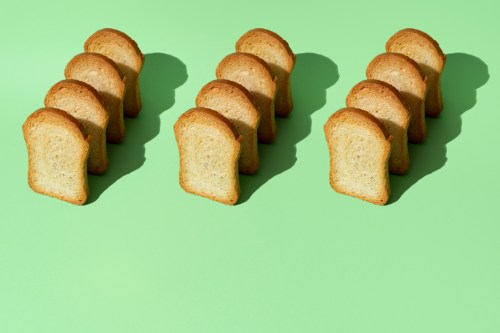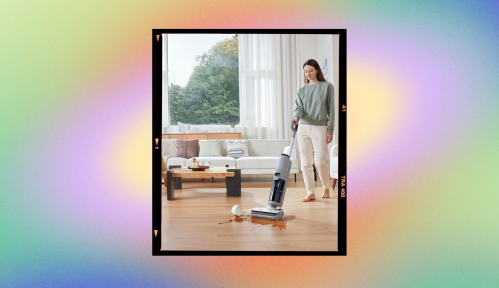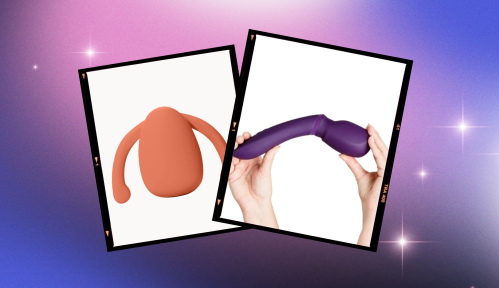Our editors independently select these products. Making a purchase through our links may earn Well+Good a commission
It’s hard to imagine a world without the luxury of chocolate. The ultra-rich superfood has been shown to decrease inflammation and improve memory, keep your heart healthy, and even boost your mood—but unfortunately not every variety is going to give you the impressive benefits. The next time you’re picking out a treat for your Halloween movie marathon, there are some important things to keep in mind.
Where does chocolate even come from?
Before going into which kind of chocolate belongs in your belly, you should know what it actually is. It’s actually been beloved since way back in 1,900 BC, when the Mesoamericans first began sipping it as a frothy fermented beverage. Yep, cocoa was basically the original kombucha. Obviously things have changed a lot since then, but chocolates all start the same. After seeds are harvested from cacao pods that grow on small trees native to the Amazon Basin, they’re fermented, dried, and roasted into cocoa beans, then turned into cocoa nibs. Then from there, those nibs go through different processes that result in the many forms of chocolate you see on store shelves, from powders and liquids to chocolate bars.
Dark chocolate vs. milk chocolate
The more chocolate is processed, the more is loses the qualities that make it healthy in the first place. Many of the benefits of chocolate come from flavanols (phytonutrients found in cocoa), which have antioxidant effects—and a very bitter taste. But as it’s fermented, alkalized, and roasted to help neutralize that taste, those flavanols start to disappear, according to the Cleveland Clinic. Since dark chocolate contains a minimum of 35 percent cocoa, it keeps more of its health benefits than milk chocolate, which only contains under 10 percent cocoa—AKA you’re barely getting any chocolate at all (but something that tastes really stinkin’ good).
The healthiest type of chocolate
When it comes to which type of chocolate is the healthiest, the answer is simple: it’s dark chocolate by a landslide (BTW, we’ve gathered the best vegan chocolate options to take things up a notch). Since dark varieties contain super-high cocoa contents (usually 70 to 80 percent, but many up to 100!), they contain more flavanols than milk chocolate. But the more cocoa you have, the more bitter your chocolate will be—and that’s exactly why milk chocolate adds in a lot of milk and sugar to sweeten things up. Unfortunately, eating something that’s primarily sugar and saturated fat is a no-go for your health, though.
But don’t worry: You can still get your choco-fix and do something good for your body at the same time. Experts recommend sticking with varieties that are 70 percent cocoa or higher to reap the benefits—like helping you fight off disease and even making you smarter. Plus, dark chocolate is packed with important minerals—like magnesium, zinc, and iron—which can also help keep your brain healthy as you age.
How to shop for a healthy dark chocolate
The key is to make sure you’re getting a real dark chocolate option—not milk chocolate in disguise. Nutritionists say that means looking for something that has more than 70 percent cocoa, a low natural sugar content, and a short ingredient list (with no dairy, including lactose, milk solids, whey, casein, or butter fat). Also, most dark chocolates contain vanilla bean to help with the bitterness, so make sure you’re getting the actual vanilla—not something synthetic, like vanillin.
Now, you’re probably not going to find a suitable dark chocolate option hanging out by the checkout at regular grocery stores—Hershey’s “dark chocolate” bar, for instance, has sugar as its first ingredient and contains multiple different types of milk—but there are plenty of brands that have both the great taste and benefits you’re craving. To get started, look for options from Go Raw, Alter Eco, Hu Kitchen, and Theo. You have every excuse to indulge in a few pieces every night—it’s for your health, after all.
These three cacao powder recipes will let you have all-chocolate everything. Or, check out the delish chocolate breakfast spread that’s totally healthy and easy to make.
Sign Up for Our Daily Newsletter
Get all the latest in wellness, trends, food, fitness, beauty, and more delivered right to your inbox.
Got it, you've been added to our email list.











